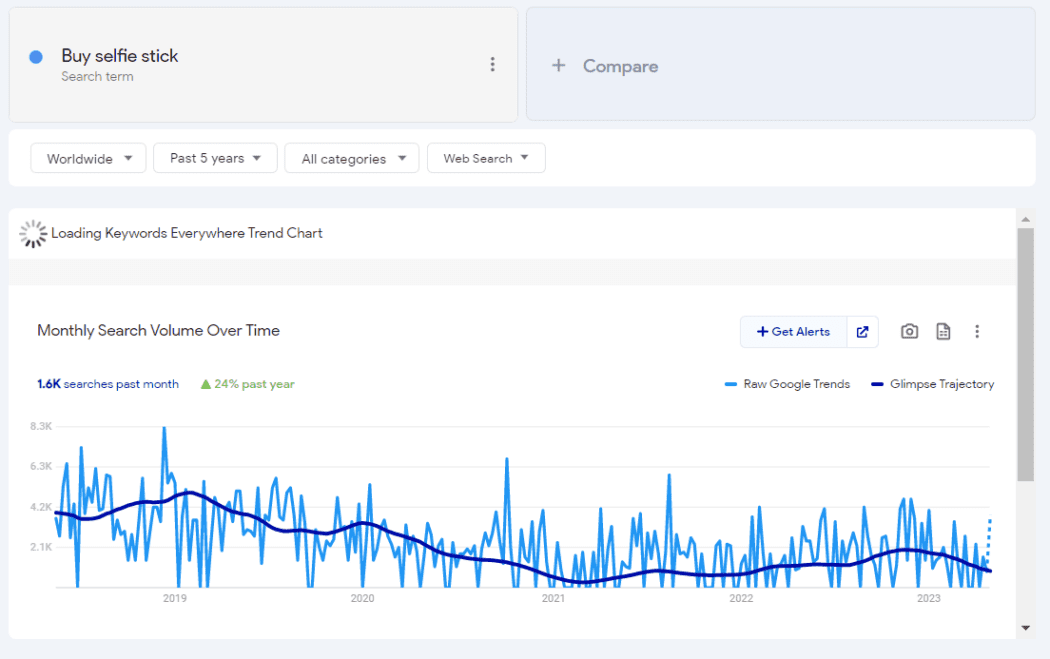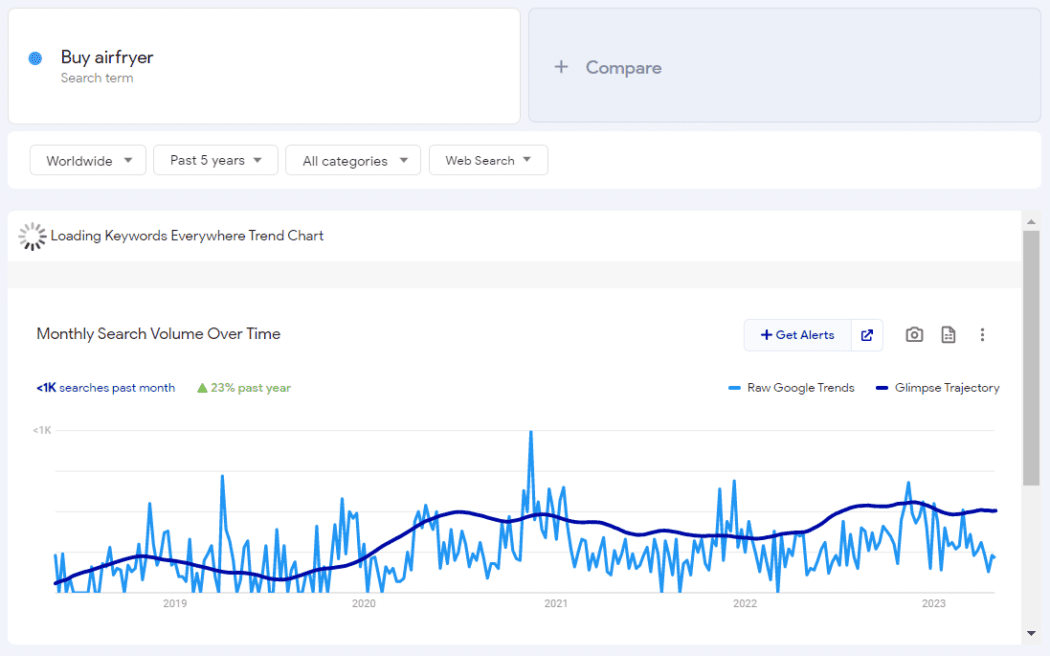Starting A Business
25 ideas for online businesses that work in 2023
Published
10 months agoon

Get up to 30%* off! Get going with GoDaddy!
In today’s fast-paced digital world, the allure of starting an online business has never been greater. The ability to work from anywhere, cater to a global audience and enjoy the flexibility of being your own boss are just a few of the many reasons aspiring entrepreneurs are exploring online ventures. However, with so many possibilities at your fingertips, choosing the right online business idea can feel like a daunting task.
Don’t fret, we’re here to help.
In this guide, we’ve compiled a list of 25 diverse online business ideas that cater to a variety of interests and skill sets. Whether you’re a seasoned professional looking to transition into the online space, or a budding entrepreneur looking for the perfect opportunity, these ideas will inspire you to take the leap and start building your ideal online business right away.
25 online business ideas that you can start today
Here are the 25 online business ideas that we’re going to cover:
- Provide content editing.
- Launch dropshipping business.
- Develop an ecommerce store.
- Produce podcasts.
- Offer translation services.
- Construct niche websites.
- Revamp and update websites.
- Sell handmade products.
- Design a training program.
- Create a YouTube channel.
- Provide ghostwriting services.
- Do voiceover work.
- Stream videogames.
- Sell 3D-printed items.
- Offer social media management.
- Become a freelancer.
- Curate subscription box service.
- Buy and sell domain names.
- Provide accounting services.
- Offer travel planning services.
- Do resume writing.
- Become a life coach.
- Teach online classes.
- Provide technical support.
- Operate online community management.
Ready? Let’s go.
1. Provide content editing
With the rise of AI-generated content, the need for careful and thorough content editors continues to grow.
- What it involves: Content editors spruce up content, fact-check, and give content suggestions, as well as correct grammar and punctuation. They also explain writing ideas in simple terms for non-writers.
- Skills needed: Writing, copy editing, and proofreading experience. Strong attention to detail.
- Equipment required: A computer and reliable internet connection.
- Possible earnings: A content editor earns an average of $26 per hour, with ranges of $21-38 per hour depending on location.
2. Launch dropshipping business
Dropshipping is a great way to get started in ecommerce without having to manage your own inventory.
- What it involves: Dropshippers operate an online store, selling products without holding inventory or handling the shipping process. They partner with suppliers who fulfill orders on their behalf, allowing the dropshipper to focus on marketing and customer service.
- Skills needed: Ability to identify a profitable market segment. Create a strong marketing plan. Source reliable suppliers. Provide solid customer service.
- Equipment required: A computer, reliable internet connection and dropshipping website.
- Possible earnings: Depending on niche/market, dropshippers can make $1000-$3000 monthly.
Note: If you need a seamless way to accept payment online, GoDaddy Payments is a great tool.
3. Develop an ecommerce store

If you’d rather sell your own products instead of dropshipping, opening your own ecommerce store would be the next logical step.
- What it involves: Ecommerce store operators need to effectively manage their online platforms, manage product inventory, and ensure a seamless customer experience. Additionally, they must implement strategic marketing and customer service efforts to drive sales, build customer loyalty and maintain a strong online presence.
- Skills needed: Skilled in digital marketing, including SEO, email campaigns, and social media to promote their store. Web design and development skills. Ability to conduct product research and inventory management to identify profitable items and maintain accurate stock levels.
- Equipment required: A computer, reliable internet and an online store builder.
- Possible earnings: Earnings for ecommerce stores vary widely, but a 10% net profit is considered to be an average profit for ecommerce stores.
4. Produce podcasts
Podcasts continue to grow in popularity and, with a relatively low barrier to entry, the possibilities are numerous.
- What it involves: Podcasters create and distribute episodic digital audio content, often focusing on specific topics or themes, engaging listeners through storytelling, interviews or discussions. They also manage the technical aspects of recording, editing and promoting their podcasts, building an audience and fostering a sense of community among their listeners.
- Skills needed: Strong communication and storytelling skills. The ability to engage and connect with their audience through compelling content. Must have technical proficiency in audio recording, editing, and publishing software. Marketing skills to promote their podcast.
- Equipment required: Quality microphone, headphones, recording software, camera (if doing video), computer, strong internet connection.
- Possible earnings: Depending on audience and monetization, podcasters can earn anywhere from $300-5000 per episode.
5. Offer translation services
Language translation is a specialized field, but is one that can be easily performed online.
- What it involves: A language translator converts written text from one language to another, ensuring that the meaning, style and tone of the original content are accurately preserved.
- Skills needed: Possess a deep understanding of the source and target languages, as well as cultural nuances. Strong grasp of grammar and syntax. The ability to accurately convey meaning and tone.
- Equipment required: A computer and reliable internet connection.
- Possible earnings: A language translator can expect an average of $33 per hour, with ranges of $21 to $48 per hour.
6. Construct niche websites


Niche websites are websites intended to cater to a small segment of a large market by focusing on a specific interest.
- What it involves: A niche website developer designs and builds websites that target a specific audience with a shared interest in a particular subject. They create user-friendly and engaging content, ensuring the site’s layout and features effectively address the unique needs and preferences of the niche market.
- Skills needed: Strong web development skills. Keen understanding of user experience and interface design. Deep knowledge of the targeted niche market. Ability to create engaging, audience-specific content that resonates with users.
- Equipment required: A computer and reliable internet connection.
- Possible earnings: Web developers earn a median salary of $77,030 in the United States, with freelance web developers typically earning twice that.
7. Revamp and update websites
The internet has been around for a long while and older web technologies are rapidly becoming outdated. Offering web redesign services is a valuable online business idea.
- What it involves: This job is similar to the previous listing, but someone providing website update services will need to assess the current site’s layout, user interface and overall design to identify areas that require improvement or modernization. They will then create and implement a refreshed design that adheres to the latest web design trends and meets the specific goals and objectives of the website owner or business.
- Skills needed: Strong web development skills. Keen understanding of modern user experience and interface design. Ability to combine modern web design standards with the needs of the website owner. Detailed knowledge of how to bring old content up to current standards.
- Equipment required: A computer and reliable internet connection.
- Possible earnings: Earnings will vary widely based on skill level and the amount of work needed, but website update work is typically billed hourly at a rate of $18-25 per hour.
Note: Need a logo for an updated website? GoDaddy’s free logo maker has you covered.
8. Sell handmade products
If arts and crafts are your strong suit, then selling your crafts online can be a good way to bring in some extra money.
- What it involves: A crafter creates handmade items, such as jewelry, clothing, home decor, or artwork, by utilizing their artistic skills and various materials. They earn a living by selling these unique products through various channels, such as online shops and craft fairs.
- Skills needed: Strong digital marketing skills, including photography, search engine optimization (SEO) and social media management. Quality customer service. Skills either with web design or familiarity with marketplace platforms like Etsy, Amazon or Instagram Shopping.
- Equipment required: A computer, reliable internet connection, POS system (if also selling via craft fairs) and crafting materials specific to their specialty.
- Possible earnings: Earnings will vary widely by the type of craft being sold. Etsy sellers, for example, earn a median of $537 per month, but individual experiences will differ.
9. Design a training program
Online skills training courses remain a strong demand and, if you have extensive knowledge on a topic, you can turn that knowledge into an online business.
- What it involves: Virtual trainers design and deliver educational content through digital platforms, typically in a video or audio format. Typically done via a static online course that users pay to access, but can also be live.
- Skills needed: Strong communication skills to effectively train viewers on complex topics in an understandable way. Proficiency in using various online training tools and technologies. Excellent time management and organizational skills to plan lessons and create relevant training courses.
- Equipment required: A computer and a reliable internet connection, as well as access to a digital learning platform, such as Udemy or Skillshare.
- Possible earnings: What you can earn will vary based on how you choose to distribute your online classes, but online trainers can earn an average of $51,544 per year.
10. Create a YouTube channel


YouTube is a popular video-sharing platform that allows users to upload, view, rate, share and comment on a wide variety of user-generated content, ranging from entertainment and educational videos to music and live streams.
- What it involves: A YouTube creator produces, edits and uploads video content on the YouTube platform, often focusing on specific topics, interests or niches. YouTubers aim to grow their subscriber base, increase views and potentially earn revenue through ads, sponsorships or merchandising.
- Skills needed: Strong storytelling and communication skills to create engaging, relatable content that resonates with their target audience. Solid video editing and production skills. Keen understanding of social media and digital marketing strategies to promote their channel and grow their viewership.
- Equipment required: Quality video camera, studio lighting, microphone, editing software, a computer and a strong internet connection.
- Possible earnings: The average YouTube pay in 2022 was about $1,154 per week or $4,616 monthly. Creators earn about 55% of the revenue on their channels. For every $100 an advertiser pays, Google pays $55 to the creator.
11. Provide ghostwriting services
Self-publishing is exploding in popularity and, along with it, the demand for skilled ghostwriters has grown as well.
- What it involves: Ghostwriters create written content (articles, books, speeches, etc.) on behalf of another person, often without receiving public credit for their work. They collaborate closely with clients to ensure the final product reflects the desired tone and message.
- Skills needed: Impeccable writing skills, strong grammar, punctuation, and storytelling abilities. Ability to adapt to different writing styles and tones to accurately convey the client’s voice. Excellent research skills.
- Equipment required: A computer and a reliable internet connection.
- Possible earnings: Ghostwriters sometimes charge by the word or by service, but typically can expect between $35-$140 per hour.
12. Do voiceover work
For those with strong acting backgrounds, voiceover work and voice acting continues to be a solid work option.
- What it involves: Voiceover artists provide the spoken narration or character voices for various media projects, such as commercials, films, video games, and animations. They use their vocal talents and acting skills to convey emotions and personality to a script.
- Skills needed: Exceptional vocal control and versatility to alter pitch, tone and accent. Strong acting skills. Good enunciation. Ability to interpret scripts and take direction.
- Equipment required: Quality microphone, headphones, recording software, camera (if doing video), computer, strong internet connection.
- Possible earnings: Earnings will vary based on the format and skill, most voice actors can expect to earn within the range of $13,500-87,499 per year.
13. Stream video games


Streaming video games started as a niche form of entertainment but continues to grow in popularity, especially around esports competitions and noteworthy personalities.
- What it involves: Video game streamers broadcast themselves playing video games live on platforms like Twitch or YouTube Gaming, providing entertainment and commentary to their viewers. They engage with their audience through chat interactions and often monetize their content through donations, subscriptions, sponsorships and advertising revenue.
- Skills needed: Strong communication and entertainment skills, enabling them to captivate and engage their audience through commentary, humor, and personality. Solid understanding of the streaming platforms. Technical expertise for troubleshooting issues. Social media savvy to promote their channel and build a loyal community.
- Equipment required: Quality microphone, headphones, streaming software, camera, a computer able to handle simultaneous gaming and streaming, and a strong internet connection.
- Possible earnings: Video game streaming has a wide variance in earnings, with smaller streamers earning $50 and $1500 per month and medium to large channels earning $3000-6000 per month.
14. Sell 3D-printed items
3D printers are becoming increasingly accessible to the public, allowing owners to create custom 3-dimensional products.
- What it involves: A 3D printer crafter designs and creates unique objects, such as figurines, sculptures, or functional items, using 3D modeling software and a 3D printer. They may sell their creations online or at craft fairs, or provide custom 3D printing services to clients seeking personalized designs and products.
- Skills needed: Proficiency in 3D modeling software to design and prepare digital files for printing. Thorough understanding of 3D printer operation, maintenance, and materials. Strong entrepreneurial skills, including marketing and customer service.
- Equipment required: Quality 3D printer, 3D modeling software, print materials, POS system (if selling at trade shows) and a computer.
- Possible earnings: Similar to handcrafted goods, the earnings will vary widely for 3D printer designers and crafters. Given the time required to both design and print the items, most crafters will charge hourly, from $10-50 per hour.
15. Offer social media management
Social media is a must for businesses these days, but managing a business across multiple platforms is extremely time-consuming. And so, the demand for social media management continues to grow.
- What it involves: A social media manager is responsible for creating, curating and managing content across various social media platforms to enhance a brand’s online presence and engage with its audience. They also analyze performance metrics and develop strategies based on those metrics to increase engagement for the brand.
- Skills needed: Strong communication and writing skills to create compelling content that resonates with the target audience. Deep understanding of each social media platform’s algorithms and best practices. Highly organized, creative and analytical, with the ability to multitask and adapt to the ever-changing digital landscape.
- Equipment required: A computer and a reliable internet connection.
- Possible earnings: The average salary for a social media manager is $70,287.
Note: Interested in creating videos for social media? GoDaddy’s online video editor can help you out.
16. Become a freelancer
If you’re more of a generalist, jack-of-all-trades type of person, then general freelancing can be a diverse and interesting option.
- What it involves: A general freelancer offers their expertise and skills in various fields such as writing, graphic design, web development, or marketing on a project-based or contractual basis, allowing them to work with multiple clients simultaneously.
- Skills needed: Excellent time management and organizational skills to handle multiple projects and meet deadlines. Exceptional communication abilities to build rapport with clients and understand their requirements. Self-motivated, adaptable and continuously focused on developing their expertise in their specific field to stay competitive and relevant in the ever-evolving market.
- Equipment required: A computer and a reliable internet connection.
- Possible earnings: Due to the variance in work needed, the earnings will vary, but freelancers generally make an average of $30-40 per hour.
17. Curate subscription box service
Subscription box services have flourished in recent years and are increasingly expanding their reach into more niche markets.
- What it involves: Creating a subscription box service involves carefully curating and sourcing unique, high-quality products tailored to a specific niche, and designing an appealing and functional packaging that reflects your brand identity. Additionally, you would need to develop a robust marketing strategy, manage inventory and logistics, establish pricing and billing structures, and provide excellent customer service to maintain subscriber satisfaction and retention.
- Skills needed: Project management and organizational skills to oversee product quality and sourcing. Creative and strategic thinking abilities to curate appealing boxes. Excellent customer service and relationship-building skills to foster loyalty and ensure subscriber satisfaction.
- Equipment required: A computer and a reliable internet connection.
- Possible earnings: Subscription boxes tend to generate a gross profit of between 40% and 60% due to the low cost of goods and recurring renewals.
Note: Your subscription box service will need a website. Create a website using GoDaddy’s Website Builder.
18. Buy and sell domain names
If you’re unfamiliar with this particular field, domain investing, also known as domain flipping or domain trading, is the practice of buying domain names to hold onto them or improve their value and later selling them at a profit.
- What it involves: A domain investor strategically identifies and registers potentially valuable domain names, anticipating future demand for these web addresses based on trends, keywords or industry relevance. They then hold onto or improve the domains and eventually sell them at a higher price to interested parties, generating profit from the increased value of the domain names.
- Skills needed: Superb analytical skills to identify valuable and potentially profitable domain names. Excellent negotiation and marketing abilities to sell or lease those domains at the best possible price. Deep understanding of market trends and consumer behavior within the digital landscape to make informed decisions and maximize their investment returns.
- Equipment required: A computer and a reliable internet connection.
- Possible earnings: New domain investors typically start small, earning around $100-$2000 per month.
19. Provide accounting services


Are you an accountant by trade and want to be your own boss? Freelance accounting would be a great fit.
- What it involves: A freelance accountant provides professional accounting services to clients on an individual or contractual basis, without being tied to a single employer or company. Their responsibilities may include financial reporting, tax preparation, bookkeeping and financial analysis, allowing businesses and individuals to maintain accurate financial records and make informed financial decisions.
- Skills needed: Exemplary analytical and organizational skills to accurately maintain and analyze financial records. Understanding of accounting principles, tax regulations and financial management. Excellent communication and interpersonal skills to effectively convey financial information and advice to clients, and adapt to the varying needs of different businesses and industries. CPA license will also likely be required.
- Equipment required: A computer and a reliable internet connection.
- Possible earnings: Freelance accountants tend to make around $35 per hour.
20. Offer travel planning services
Travel is booming in 2023 and more travel planners are a necessity. If you’re a seasoned traveler, why not offer travel planning services?
- What it involves: Travel planners, also known as travel agents or travel consultants, assist clients in planning, organizing, and booking various aspects of their trips, including transportation, accommodations and activities. They leverage their expertise in the travel industry and destination knowledge to create personalized itineraries, provide travel advice and ensure a seamless and enjoyable travel experience for their clients.
- Skills needed: Organizational and multitasking skills to manage multiple clients and bookings simultaneously. Strong attention to detail to ensure all trip components are arranged accurately and efficiently. Exceptional interpersonal and communication skills to build rapport with clients, understand their travel preferences and effectively convey relevant information and recommendations.
- Equipment required: A computer and a reliable internet connection.
- Possible earnings: Freelance travel planners typically make an average of $62,439 per year.
21. Do resume writing
As the economy continues to shift through this year, resume review services are in high demand and are likely to stay that way for a long while.
- What it involves: A freelance resume writer specializes in crafting, editing and optimizing resumes for clients to effectively showcase their skills and achievements in a compelling manner. They work closely with clients to understand their career goals, tailor their resumes for specific industries or job opportunities, and provide guidance on best practices for resume writing and formatting to increase the likelihood of securing job interviews.
- Skills needed: Strong writing and editing skills to accurately and creatively present a client’s professional background. Deep understanding of current recruitment trends and hiring practices to ensure the resume aligns with industry expectations. Excellent communication and interpersonal skills to effectively collaborate with clients, gather relevant information and provide constructive feedback throughout the resume development process.
- Equipment required: A computer and a reliable internet connection.
- Possible earnings: Most resume writers charge a flat rate per resume, with the average currently being about $200.
22. Become a life coach
If your strength is motivating others, the coaching field is in-demand and likely a perfect match for your skills.
- What it involves: A life coach is a professional who helps individuals identify their personal and professional goals, overcome obstacles and develop strategies to improve various aspects of their lives. Through guidance and support, life coaches assist clients in building self-awareness, fostering personal growth and achieving desired outcomes in areas such as relationships, career, health and overall well-being.
- Skills needed: Active listening and communication skills to understand their clients’ needs, challenges and aspirations, while providing thoughtful feedback and guidance. Excellent interpersonal and empathetic abilities to establish trust and foster a supportive environment.
- Equipment required: A computer, a web camera for remote sessions and a reliable internet connection.
- Possible earnings: Coaches currently earn a median income of $60,510 per year.
Note: It’s a good idea to keep your personal and professional phone numbers separate to accommodate clients. Get a second phone number to use for your coaching business to separate it from your personal one.
23. Teach online classes


Teachers and skilled tutors are always in demand, so if you have a passion for helping others learn, consider teaching live courses online.
- What it involves: An online teacher delivers educational instruction and support to students through virtual platforms, utilizing digital tools and resources to facilitate learning and engagement. They create lesson plans, assess student progress, provide feedback and adapt their teaching methods to accommodate different learning styles and needs in a remote setting.
- Skills needed: Strong communication and presentation skills to effectively convey information and concepts through digital mediums. Ability to utilize technology and online teaching tools to enhance the learning experience. Excellent time management, organization, and adaptability skills to meet the unique challenges and demands of virtual education.
- Equipment required: A computer, a web camera for remote sessions and a reliable internet connection.
- Possible earnings: Teachers typically make $48,033 per year.
24. Provide technical support
As long as technology continues to grow and develop, there will be a need for technical support.
- What it involves: Freelance technical support professionals provide remote assistance and troubleshooting services for clients experiencing issues with their hardware, software or network systems. They diagnose and resolve technical problems, offer guidance on best practices and may also assist in system maintenance, updates, and configurations to ensure optimal performance and user satisfaction.
- Skills needed: Advanced problem-solving and analytical skills to efficiently diagnose and resolve a wide range of technical issues, as well as in-depth knowledge of various hardware, software and network systems. Strong communication and customer service skills to effectively interact with clients, explain complex technical concepts in layman’s terms and provide clear guidance and support.
- Equipment required: A computer and a reliable internet connection.
- Possible earnings: The pay will vary on the specialty and technical skill level, but freelance technical support engineers are paid an average annual salary of $99,686.
If you’re outgoing and enjoy listening to multiple points of view on topics, then a community manager role could be for you.
- What it involves: An online community manager is responsible for overseeing, engaging with, and growing an online community on behalf of a brand, organization or client. Their duties typically include creating and curating content, moderating discussions, responding to community members’ questions and concerns, monitoring community sentiment and implementing strategies to foster a positive and active community environment, all while working remotely.
- Skills needed: Excellent communication and interpersonal skills to effectively engage with diverse community members, address their concerns and foster a sense of belonging within the community. Organizational skills and a keen understanding of social media platforms, analytics and content creation to strategically manage and grow the online community in alignment with the brand or organization’s goals.
- Equipment required: A computer and a reliable internet connection.
- Possible earnings: Depending on the company size and skills required, the earnings can vary, but the US average salary is $60,172.
Tips for starting an online business
Starting an online business can be both an exhilarating and challenging endeavor. If you’re interested in getting started, here are some quick tips to get you rolling:
- Choose a business idea based on passion and knowledge
- Identify a niche with gaps in the marketplace
- Conduct market research and competitive analysis
- Familiarize yourself with relevant laws and regulations
- Obtain a federal employer identification number (FEIN)
- Decide on a suitable legal structure
- Insure your business
- Select appropriate software for your business venture
- Develop a comprehensive marketing strategy
By following these steps, you will be well on your way to establishing a thriving online business.
Conclusion
As this list of online business ideas shows, 2023 offers a wealth of opportunities for aspiring entrepreneurs to establish successful online businesses. There’s something for everyone, with a wide range of professional interests and skill sets.
By identifying the right niche, honing the necessary skills and leveraging the power of the internet, you too can build a thriving online business and enjoy the flexibility and freedom that come with it.
Marketing
How to start selling online, full guide for beginners
Published
8 months agoon
May 30, 2023
Get up to 30%* off! Get going with GoDaddy!
Is selling online over-saturated? No way! It’s still very doable to make money from anywhere with a laptop. You just need to learn how to sell online and have the dedication to make it work.
This guide will give you proven methods to sell products and services online with insights from people making money using digital platforms. Plus, we’re sharing tips for building your own website and the secrets to selling with social media.
How to start selling online
Before jumping in and making your first sale, you need to know what you’re selling and who to. Through market research, you will find the answers.
Do market research
Once you’ve brainstormed the products or services that you’d like to sell online, you’ll need to see if there’s a market for those products. To do this, there are market research tools online that you can use.
Market research involves gathering information about your target market, competitors and industry trends. The goal is to determine whether or not your ideas are likely to make money and, if they are, how you can reach an audience interested in buying from you.
Market research includes:
- Competitor analysis to see what others are doing and what works for them. You need to look at where you fit within the market, what makes you stand out and what you can offer that competitors don’t.
- Analyzing online forums where your audience hangs out to build a picture of who your audience is and what they need so that you can target them better.
- Look for trends to discover products people are looking for now.
Top tip: When it comes to identifying trends, you can use Google Trends, which is a free tool. Search the product or service you’re considering selling and see how interested people are.
For example, a search for ‘buy selfie stick’ shows that searches for this product peaked in 2018 and have steadily declined in search volume; probably not the product for you right now.

Searches for air fryers, on the other hand, increased in 2020 and have remained relatively stable ever since.


Choose a niche and product
If you’re starting your online selling venture from scratch, it’s best to start with a niche product or service.
Niching allows you to build out an audience looking to solve a specific problem. You will get to know your buyer deeply, and only then can you provide them with all the reasons why your chosen product or service helps them.
Top tip: it will help if you genuinely like and believe in what you’re selling, especially if you’re going to sell on social media (more on that later).
Choose a platform or create an online store
The key to choosing a platform – or platforms – is not to spread yourself too thinly. If you’ve done your market research thoroughly enough, you will already have an idea of where your audience is hanging out online.
Top tip: consider your time. You are better off covering fewer platforms well than covering many badly. You can always scale later.
Market and sell
Once you’ve covered the above, it’s time to jump into your marketing plan. You’ll need a marketing plan that considers the buyer funnel. Think about the content you need to create to persuade prospective customers to buy from you. You will also want to build trust as part of your marketing strategy.
Top tip: sites like Reddit and Quora are free and provide insight into your audiences, their problems, their issues with competitors and so much more. The same applies to Google’s People Also Ask.
Sticking with the idea of selling air fryers, a quick search of the word ‘air fryers’ returns commonly asked questions about pros and cons.


Popular platforms where you can sell products online
Now that you’ve got your marketing plan started, it’s time to choose a platform for selling online.
Sell on your own online store
You can’t sell online without a digital store or platform. While you can sell on social media (more on this later), an owned channel like a website can become an asset over time.
Here’s some guidance on setting up your own platform.
Choose a domain
Check your desired domain name is available and buy online. Your domain name should be the same as your business name. It should be memorable, easy to spell, and relevant.
Create your store
Create an online store using GoDaddy’s Website Builder and set up shop within a day. You can add products, take payments and sell online from anywhere in the world.
Add payment processing
You need to integrate your online store with a payment gateway to accept payments. The gateway you choose comes down to personal preferences, terms and conditions and transaction fees.
PayPal is free to integrate but may charge a higher rate per sale, but if you want to test your ecommerce store before committing to a gateway like Stripe, PayPal can be a good start.
Manage inventory
Inventory management is crucial for any ecommerce business, especially if you receive orders online. If you have physical products, your inventory must match what’s available online; otherwise, your risk selling more products than you have in stock, resulting in disappointed customers.
If you’re selling online and offline, stock inventory can get more complicated as you must regularly update your online inventory. Larger businesses have inventory management systems for this, but as a start-up, you can sometimes manage inventory updates with good administration.
Choose a shipping provider
Shipping can get rather complex, especially if you’re planning on handling international orders. You need to think about shipping costs and how you will manage them. Some businesses choose to absorb shipping so there’s no obvious cost to the buyer. Of course, if you do this, shipping costs should be factored into your product price.
Shipping calculations vary, but here are some options.
- Flat-rate shipping is as it sounds. The business charges the same shipping cost for all packages, regardless of weight or distance. Flat-rate shipping should be carefully monitored. With a flat rate, your business expects to profit on some purchases and lose on others, especially if you’re shipping internationally. Flat-rate will only work if the profits and losses are approximately balanced.
- Actual cost is a calculation where the business calculates the exact shipping cost for each package and charges this to the customer. This is usually done automatically at checkout using a shipping calculator. The calculation will take into account location, weight, size and more.
You can incentivize a purchase with free shipping, and you can also offer more expensive shopping options for faster delivery.
Top tip: Test your shopping experience before you start. You must ensure your prospective customers have a seamless experience from finding you to buying. That means no broken checkout.
Sell on Marketplaces
Marketplaces like Amazon, Etsy, eBay and Craigslist offer excellent opportunities to reach a broad audience and sell your products. Service-based businesses can try Freelancer, Upwork, Toptal and more.
You can sell on many of these marketplaces and your website. You can try the marketplaces and see how they perform.
Naturally, each marketplace will take a percentage of the sale, so you’ll need to factor that in.
Amazon
Any ecommerce brand should at least try out Amazon. It is a search engine for products, and some of your buyers will go to Amazon before Google.
Pros
- Amazon is one of the largest ecommerce marketplaces.
- It’s simple to set up a seller account and list your products.
- Users may use Amazon as a search engine rather than Google, so you’re reaching a new audience.
Cons
- Amazon has over two million sellers, so you need good product photography to stand out.
- For users to find you on Amazon, you need to know a little about Amazon SEO.
Etsy
Etsy is a popular marketplace for crafts, handmade and vintage products. But Etsy is also an excellent marketplace for digital products like guides, ebooks and more.
Pros
- If your product is crafty, handmade or vintage, you can know that users are heading to Etsy to find it.
- It’s cheap to start selling.
Cons
- It is a busy marketplace with lots of sellers.
- You don’t have the same control over your Etsy store as you do your store.
- Customers often expect personalization on Etsy.
eBay
eBay is one of the oldest ecommerce marketplaces. By now, most of us have probably sold (or tried to sell) something on eBay.
Pros
- It’s familiar.
- You may already have an account with some reviews to build trust.
Cons
- eBay’s UX isn’t as friendly as some alternatives.
Craigslist
Craigslist is a classified advertisements website that allows you to sell products locally.
Pros
- There are no fees
- You can sell locally, which helps with shipping fees if you want to keep your business geographically small.
Cons
- Local sales only can be limiting once you have the desire to grow.
Sell on social media
Once the products or services are available to buy, your first task is to drive traffic to the site. Here are some tips for promoting and selling your products digitally.
Social media
Social media is a great place to build an audience and, importantly, a brand. Through social media, you get to know your audience, and they get to know you; social media is personal.
TikTok
TikTok is a platform credited for its generous algorithm providing accounts with excellent reach. As one of the fastest-growing platforms with over 1 billion users, your audience is likely hanging out there.
Mia Steele is a TikTok creator who began monetizing content in April 2022. She reports great success on the platform.
Steele says, “In less than six weeks of posting on TikTok and diving into User Generated Content (UGC), I began monetizing my content. I managed to replace my income by creating content and ads for brands.
“As my TikTok following grew, I even sold my own digital products to my audience.”
Steele’s top tip for a successful social media account is, ‘Devote time to cultivate and nurture your own audience, so you can capitalize on the traffic to sell your own products.’
TikTok also has TikTok Shop that you can access once you have 1,000 followers. TikTok Shop allows you to take a commission from items promoted and sold within your videos.
Facebook and Instagram
Like TikTok, you can grow an audience on Facebook and follow the path of selling digital products. Facebook and Instagram also have Shop functionality to sell products directly on the platform.
Facebook and Instagram benefit from the ability to post from Instagram to Facebook automatically, which will save you time.
Pinterest allows you to create a shoppable feed to list your products and sell them directly on the platform. You can also use Pinterest to drive traffic to your online store or blog.
Pinterest marketer Kayla Ihrig says, “The best way to make money on Pinterest is by making pins that lead to your services or products. Unlike other platforms where you need to constantly share valuable information to market your product or service, on Pinterest, users are searching for it and just want to be able to find it. Creators need to create images or videos (called pins) that display what they offer and then optimize them for search. Then, when a user searches for a solution to their problem, they find your content and go back to your website.”
Ihrig’s pin, pictured below, is the perfect example of a pin that leads a user to her service-based site.


Selling on social media opens a window of opportunity for entrepreneurs. You can sell your own products and services or explore affiliate and email marketing, which you can advertise in tandem with your platform.
Affiliate marketing
With a combination of your website and social media, you could sell products online without actually owning or stocking a single item. Ideal for the entrepreneur craving ultimate freedom.
With affiliate marketing, you take a percentage of sales made via your channels using trackable affiliate URLs.
Mia Steele drives traffic from her social media following of 20,000 to her website. She started with a domain name from GoDaddy and started her journey into affiliate marketing. Steele says, “Within just seven months, I had joined more than 15 affiliate programs, built an email list of over 3000 subscribers, and earned over $90,000 in commissions by promoting products on TikTok and through my blog.”
The key, Steele says, is “Building your email list from day one. I underestimated the power of an email list until I ventured into affiliate marketing, and I regretted not starting earlier. Having a compelling free lead magnet and consistently producing high-quality content to drive traffic to your offers will be the key to your success.”
Email marketing
Email marketing is a cost-effective way to reach your target audience and promote your products. Done well, every email you send can make money. At least, this is the case for the team at Siligrams.
Arlene Battishill, Chief Marketing Officer, says, “Our email marketing is killing it with an average 55% open rate. Every email makes money. A recent email marketing campaign – a series of 10 daily emails – had an average 63% open rate because the campaign was nothing but stories and bad jokes and had absolutely nothing to do with our product!”
The secret to Battishill’s campaigns is consistency and humor; not every email is a sales plea that likely contributes to the sales success. Siligrams choose to humor and engage their audience instead of going for a hard sell. Remember, people buy from people.
Top tip: you can create and send stylish emails in bulk using GoDaddy’s marketing suite.
Trust the process when selling online
If it were easy, everyone would do it. Although the online selling path is simple, it requires dedication. Commit to your product, trust the process and be consistent.
As a budding entrepreneur, you have a lot to explore, and a platform that works for one business may not work for another, so be bold and experiment.
Sell online FAQ
Finally, we’re answering some of the most asked questions when it comes to selling online.
How do I sell online for the first time?
Your first online sale is the result of small steps made consistently. Follow the steps in this guide, from idea generation and market research to marketing and set-up, and you will make your first sale.
What are the most profitable items to sell online?
The most profitable items to sell online vary based on trends, but some items stand the test of time. These items include SaaS products via affiliate marketing since you earn recurring revenue.
For physical products, you can explore items in the following categories:
- electronics
- fashion accessories
- beauty products
- home decor
- health and wellness
Naturally, these categories are also some of the most competitive, and you should consider the challenges. For example, electronics can go wrong, resulting in customer service issues and refund requests. Health and wellness is challenging to build authority in, especially if you’re relying on a new, owned website to sell from.
How can I sell products online legally?
The legal requirements for selling online can vary, and you must research to ensure you comply fully with laws and regulations. You must consider registering your business, correctly paying your taxes, and customer privacy and security. Advertising online also requires you to adhere to rules and regulations, from product information to the types of images and ad copy.
What is the easiest platform to sell online?
Ease of use is a priority for any platform that allows you to sell online. You can set up an eBay, Etsy or Amazon store within a day. The platforms are already geared to helping people like you sell.
If you want to own your platform, which is not a good idea, website builders help you set up shop as quickly and efficiently as possible.
Starting A Business
Guide to Starting a Transportation Business: Key Steps and Strategies
Published
8 months agoon
May 26, 2023
Did you know that the transportation industry relies heavily on the trucking sector for 72.5% of its freight transportation? That’s a lot of goods being moved around the world on the back of trucks!
And guess what? The future looks even brighter for this industry. Experts predict the global transportation industry will experience a compound annual growth rate (CAGR) of 38.5% until 2027.
With such promising statistics, it’s no wonder that starting a transportation business can be a smart decision. Whether you dream of running a taxi service, delivering packages to people’s doorsteps, or even managing a logistics company, the opportunities are endless.
Whatever business option you may select, in this article, we’ll walk you through the key steps and strategies to help you kick-start your transportation business. So, let’s begin!
Conduct Market Research
Before diving into the transportation business, it’s crucial to conduct market research to understand the demand, competition, and potential opportunities in your target market. It’ll help you make informed decisions and tailor your services to meet customer needs effectively. Let’s explore this step further by asking three important questions:
1. Who are your potential customers?
To identify your potential customers, consider demographics such as age, gender, location, and income levels.
For example, if you plan to start a rideshare service in a college town, your target customers might be students looking for affordable transportation options.
2. What is the level of demand for transportation services in your area?
Assess the existing transportation options in your area and determine if there’s a demand gap.
For instance, if you discover that there’s a high demand for medical transport services for the elderly population, you could explore starting a specialized medical transportation business.
3. Who are your competitors, and what sets you apart?
Learn about the leading service providers in your area and how they operate their business. Analyze their strengths and weaknesses and determine what unique value you can bring to the table.
For instance, if you’re starting a courier service, you could differentiate yourself by offering faster delivery times or specialized handling for fragile items.
This way, you can gain valuable insights into your target market, understand customer preferences, and develop a competitive edge.
Create a Business Plan
Needless to say, every successful business starts with a well-crafted business plan. It serves as a roadmap, outlining goals, strategies, and financial projections. Ultimately, it helps one stay focused, secure funding, and make informed decisions.
So, to kick-start your business, you must take time and create a robust business plan. Make sure to include details such as your target market, competitive analysis, marketing strategies, operational procedures, and financial forecasts.
Also, be realistic and thorough in your projections, such as considering expenses like vehicle acquisition, maintenance, fuel, insurance, and marketing costs. Agree or not, it will come in quite handy when pitching the investors.
Obtain the Necessary Permits and Licenses
It doesn’t matter what industry you are a part of; complying with legal requirements is a must for the smooth functioning of the business. So, contact your local government or transportation authority to understand the permits and licenses necessary for your specific transportation service.
This may include commercial driver’s licenses, vehicle permits, insurance coverage, and business registrations. You must meet all these legal obligations before launching your business.
It will not only help avoid any legal issues down the road but will also demonstrate your commitment to operating a legitimate and compliant transportation business. It also builds trust with your customers, who expect an honest and reliable transportation service.

Acquire Vehicles and Equipment
The backbone of your transportation business will be the vehicles and equipment you’ll use. Not only do you need reliable vehicles to transport passengers or cargo, but you also need to ensure that they are well-maintained to avoid service disruptions.
According to professionals at Auto Glass Zone, one crucial aspect of vehicle maintenance is taking care of the glass components, such as windshields and windows. It’s because these provide visibility and safety for both drivers and passengers.
But, continuous exposure to road conditions and weather elements can damage chips, cracks, or other glass. That’s why it is essential to promptly repair or replace any damaged glass to maintain the safety and integrity of your acquired vehicles.
In addition to this, consider factors such as fuel efficiency, maintenance costs, and cargo capacity when acquiring vehicles and equipment for your business. Continuing the example above, if you’re providing courier service, you may also need equipment like hand trucks, dollies, or refrigeration units.
Build a Strong Network
Apparently, networking plays a vital role in the transportation industry. It involves establishing relationships with suppliers, clients, and other businesses in related industries. It opens doors to collaboration, referrals, and valuable partnerships.
For example, connecting with a local delivery service can lead to partnership opportunities where you can combine forces to provide comprehensive logistics solutions. Additionally, maintaining a strong online presence through a professional website and social media platforms allows you to showcase your services, attract customers, and engage with your audience.
Even so, keep in mind that networking is a two-way street. So, be proactive in reaching out, be a reliable and helpful partner, and nurture your connections.
Focus on Customer Service
Last but not least, when running a successful transportation business, one of the most critical aspects is providing excellent customer service.
Why is customer service so crucial? Well, imagine you’re a passenger in a taxi or waiting for a package delivery. How would you feel if the driver or delivery person was rude, unhelpful, or unresponsive? It would certainly leave a negative impression and make you think twice about using that service again, right?
Focusing on customer service can set your business apart from the competition and build a loyal customer base. So, train your staff and promptly address customer inquiries and concerns. You can also consider implementing technology solutions like GPS tracking systems or mobile apps to improve efficiency and communication with your customers.
![]()
Final Words
Starting a business requires dedication, perseverance, and adaptability. So, stay informed about industry trends, continuously evaluate and improve your operations, and be open to learning from your experiences.
With the right strategies and a passion for providing reliable transportation services, you can navigate the road to success in the transportation industry.
Starting A Business
Want to Start a Business in France? Four Key Tips for American Entrepreneurs
Published
9 months agoon
May 2, 2023By
Newsroom
For many Americans, the prospect of France is a romantic one, with hugely popular films and TV series like Amelie, Chocolat and Emily in Paris cementing France’s reputation for glamour, charm and indulgence. But while the appeal of France’s lifestyle and culture is undeniable, the country also offers something that’s less well known – a swath of business opportunities ready to be seized by internationally-minded American entrepreneurs.
With an estimated 4,500 American companies already operating in France, it’s clear that the country is an attractive prospect to American business people, and there is the potential for great success in La République française. However, if you want to start a business in France (or expand there) as a US citizen, it always pays to know as much as possible beforehand in order to plan thoroughly, avoid common pitfalls and give your business the best chance of thriving.
Why France?
As the third-largest economy in Europe (and seventh in the world), there is a long list of reasons why France is so appealing to business people, some of which include:
- France is a vibrant and diverse nation that boasts a skilled workforce, a large consumer population and access to the world’s largest trading bloc through its membership of the European Union.
- It is also welcoming and business-friendly, with the French government offering financial incentives to both new and established businesses and investing heavily in research and development.
- France has a strategically useful location buttressed by a highly developed transport infrastructure, greatly contributing to ease of travel and transit both within and outside of the country. London, for example, can be reached in under 2 and a half hours by Eurostar from Paris.
- France isn’t only large in terms of its economy – by surface area, France is the largest country in Europe and is made up of thirteen regions that all represent unique opportunities for entrepreneurs. It also borders eight countries and has a Channel, Atlantic and Mediterranean coast.
- An international centre of business, the Paris region enjoys global status as a major business hub, and is the number one region in Europe for hosting the world’s top 500 corporate headquarters.
Five Tips For Starting Your Business in France
One: Be prepared to navigate bureaucracy
For foreign company founders from outside the EU, the EEA or Switzerland, there are predictably some i’s to dot and t’s to cross when setting up a company in France, and the process can take some time. That being said, however, France is welcoming enough to entrepreneurs that you may find there are fewer hoops to jump through than you first expect, and there are many resources you can access to ease the process.
Anyone can establish a business in France by taking steps such as registering a business address and opening a bank account in the country, but if you would like to move to France to embark on your new venture you should apply for a long-stay visa known as the “Entrepreneur/Self-Employed” (VLS-TS) temporary residence permit.
Eligibility is determined via factors such as your ability to provide evidence that you will be engaging in an economically viable activity during your stay, and when it has been approved, the visa authorises residence for 12 months. During this time, you are allowed to live in France and engage in the commercial activity that you have outlined in your application.
This will involve a trip to the French consulate, of which there are ten across major cities in the USA. Once established, you will have to register your French business according to the correct category of your enterprise. It is also important to bear in mind that France has particular regulations across various business sectors and employment practices, and that corporate banks in France require minimum capital investments.

Two: Start learning the language
With a population that has originated in every corner of the globe, multilingualism is not unusual in the USA – one in five US adults speak a language other than English at home, (of which Spanish is the most common). But while the USA has no official language, it’s fair to say that English is the de-facto, and most particularly in the business world.
It is also the case that English is the most widely understood language in the EU, and a significant proportion of Europeans speak English as their second language (with an impressive 25% able to hold a conversation in two additional languages to their mother tongue). What’s more, 39% of French people report they are able to speak English, and many ex-pats move to the country without being able to speak French.
Despite this, it would be wrong to assume that you can easily default to English and thrive while running a business in France. The population of France primarily speaks French in both personal and professional contexts, and the French people have considerable language pride.
English might be widely spoken in business circles, but demonstrating your willingness to learn and use French phrases of greeting will be greatly appreciated, and you should bear in mind that proficiency in English is not a given. Over time, many ex-pats discover that shaping up their French language skills is key to taking advantage of everything the country has to offer.
You should also account for the fact that French is the only accepted language for official documents and contracts, and as 61% of French people don’t speak English, you will need a plan for smoothing over language incompatibilities in your business operations.
Three: Consider your new audience
In many important ways, France is not vastly different from the US, but it is still important not to underestimate cultural differences when setting up or expanding a business here. While certainly smaller than the US, it’s also important to remember that France is far from small by European standards, and like the differences between US states, there is significant regional variability across the country.
Whether it’s something simple such as the greater prevalence of smoking amongst French adults (around 33% versus 12% in the US) and the lack of a widespread tipping culture, or more complex subtleties in language, politics and history, there are many things that may be surprising about France as an American. This is why we would suggest seeking the advice of those who know the country well in many points of your business to understand how it may land with a French customer base.
There are also differences in laws and regulations which may affect your business, so it’s always worth doing thorough research as you draw up your French business plan to identify and account for factors which may not apply in the USA.

Four: Understand France’s working culture
American working culture is rather set apart from its European friends, with US citizens generally working longer hours, having less vacation time, and eating lunch (if they don’t skip it) at their desks. It also isn’t unusual for people to take calls and answer emails outside of work hours, and employers tend to have more flexibility when it comes to hiring and firing.
The French, on the other hand, tend to have a more leisurely pace of life which is facilitated by both government-mandated workers’ protections and the expectations of their working population at every point of the pay scale. This may take some adjustment when running a business and is something you’ll need to plan around – but the upside is, if you have chosen to live in France, you’ll get to enjoy this slower pace of life too!
Some things to take into account regarding French working culture are:
- The French will take their lunch break away from their desk, so unless you organise a specific lunch trip, this is a bad time for calls, meetings and emails (if you need an immediate response).
- They don’t only have significantly more holiday entitlement than Americans usually enjoy, they actually take it (whereas the average US employee who receives paid vacation only actually takes 54% of the allotted time each year.) This is usually most evident in July and August, when business slows down considerably, and as many employees will book more time off around public holidays, it pays to plan around these times of year.
- Since 2017, managers and employees of companies with more than 50 staff have not been required to answer emails outside working hours, and employees in smaller companies are likely to follow suit.
- French corporate operations are, for the most part, very hierarchical. When doing business with another company, take the time to understand the chain of command to ensure you are talking to the right people in order to get results.
- Hiring in France is an expensive proposition. Employers must account for high individual taxes when determining employee wages and the slate of employment benefits they are expected to provide. While these costs are high, however, people doing business in France tend to be repaid with a skilled and secure workforce.
- Networking is often key to success in the French business world, with personal recommendations often meaning more than accolades and titles. Forging business relationships in France can be more difficult than in America (although the collaborative nature of American business may give you a ready-made advantage), but they tend to last for a long time, making them well worth the effort.
There is a world of opportunity to be discovered by American entrepreneurs who take the plunge and start a business in France, and with proper research, a comprehensive business plan, and that famous American work ethic, success à la française can be well within your grasp.
This post was written by Katya Puyraud, a company formation expert at EuroStart Entreprises, who help entrepreneurs start a business in France and take the headache out of opening a company abroad.

Landed For Success Showcases Inspiring Stories By Dr. Tom Chesser Achieving #1 International Bestseller Status In Canada, United States, Mexico, Europe & Asia

Bob Chitrathorn Renews Membership with the Financial Services Institute

Ryan Quante, Founder of Care Income Advisors, Interviewed on the Influential Entrepreneurs Podcast Discussing Dementia Care

Hiring a Remote Worker? It Takes More Than an Internet Connection

Flexible, shorter-term apartment startups gain more traction

Six Office Remodels That Will Help Improve Work Culture
Trending
-

 News4 days ago
News4 days agoRyan Quante, Founder of Care Income Advisors, Interviewed on the Influential Entrepreneurs Podcast Discussing Dementia Care
-

 News6 days ago
News6 days agoSensationally Wired Launches the NeuroSoothed Sleep Method Course, Offering Transformative Techniques for Improved Sleep
-

 News3 days ago
News3 days agoBob Chitrathorn Renews Membership with the Financial Services Institute
-

 News3 days ago
News3 days agoLanded For Success Showcases Inspiring Stories By Dr. Tom Chesser Achieving #1 International Bestseller Status In Canada, United States, Mexico, Europe & Asia
-

 News4 days ago
News4 days agoJohn Martin with Compass Wealth Strategies Interviewed on the Influential Entrepreneurs Podcast Discussing Using Life Insurance for Retirement
-

 News4 days ago
News4 days agoDOSS Celebrates Significant Milestone: First DOSS Home Center Franchise Opens in Flower Mound, Texas
-

 News4 days ago
News4 days agoDr. Annette Greenwood Empowers Women Over 50 to Triumph Over Adversity and Rediscover Life’s Magic

